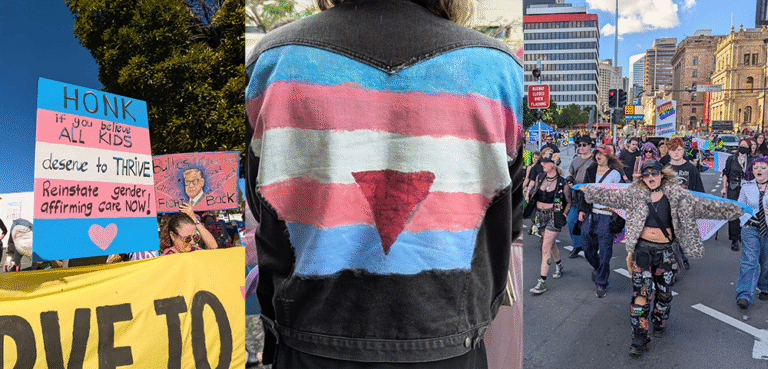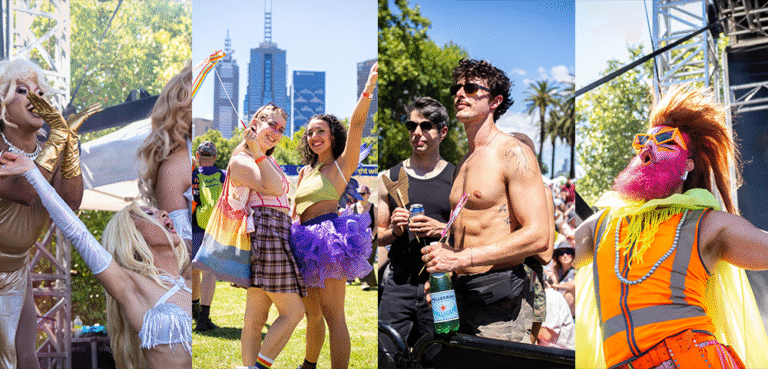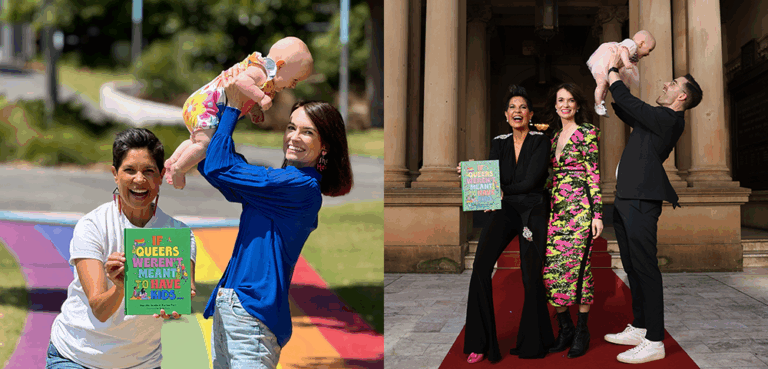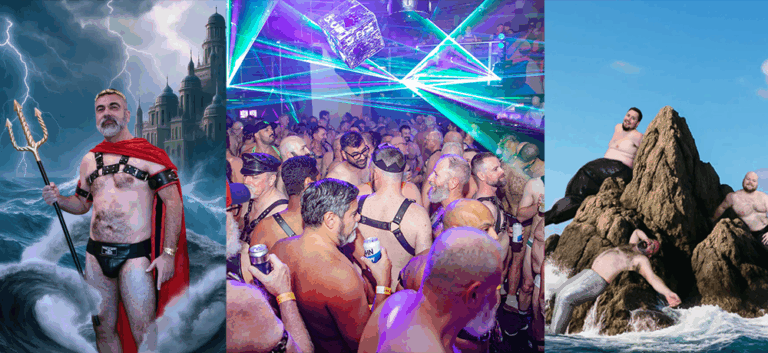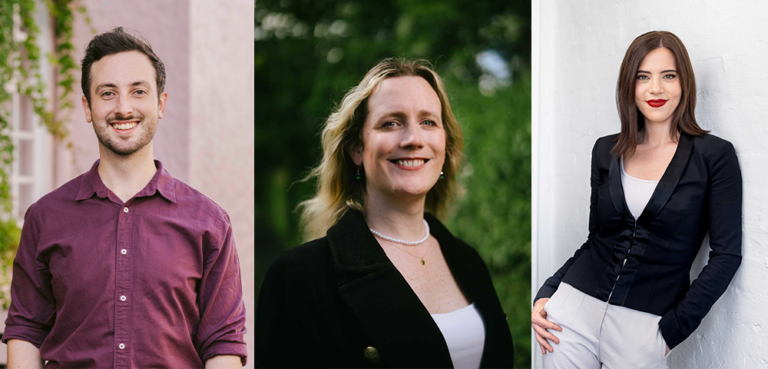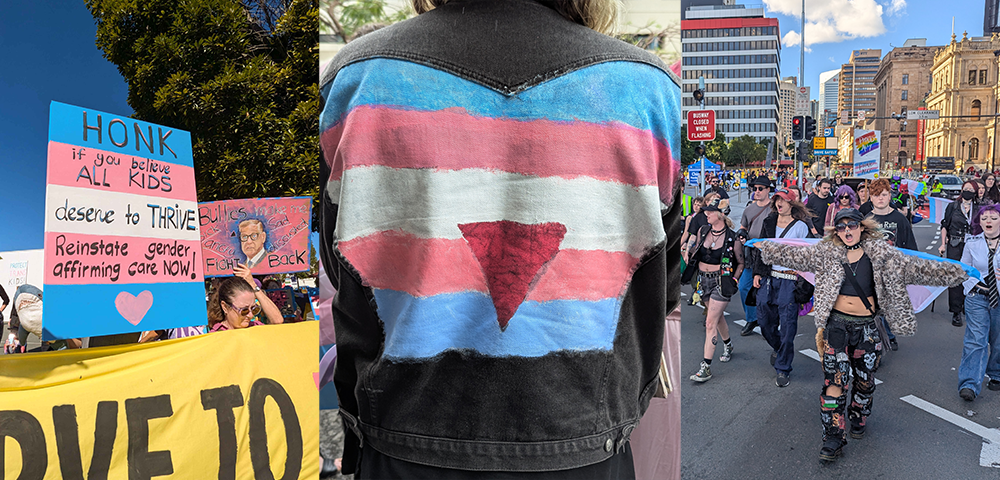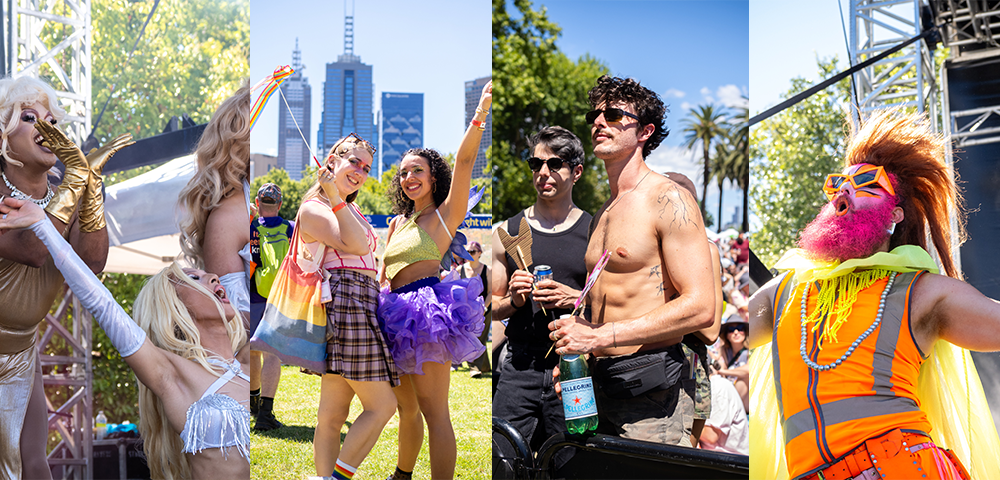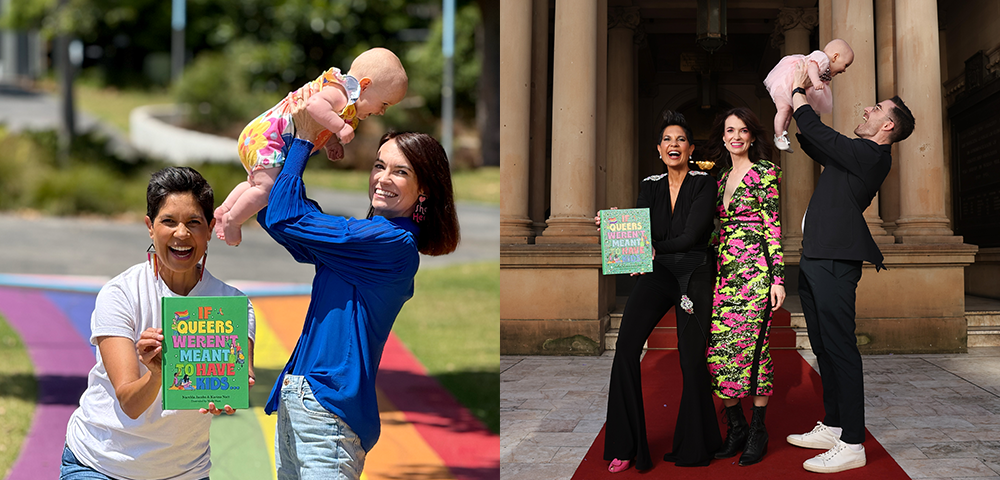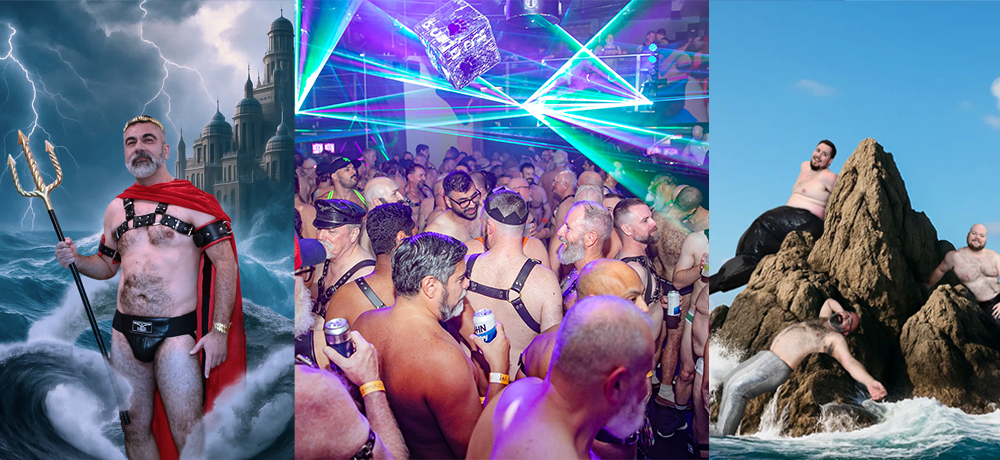
An Australian story
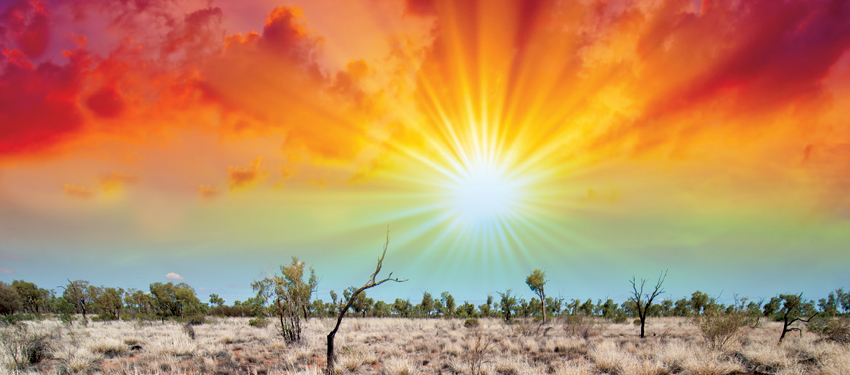
THERE are marginalised communities that often struggle to assert themselves in wider society, or in worst case scenarios, they are forgotten or thought to be non-existent.
In November last year, sisters and sistergirls Brie and Rosalina Curtis established Sisters and Brothers NT, the world’s first organisation providing specific support for sistergirls and brotherboys in Indigenous communities across the Northern Territory and beyond.
Shortly afterwards, the national Indigenous LGBTI network Black Rainbow was established by Dameyon Bonson, which in just over six months has attracted over 4000 fans and followers across Facebook and Twitter.
Making use of social media, both groups have been able to facilitate the sharing of stories by countless LGBTI Aboriginal and Torres Straight Islander people.
These are the stories of Jay Delaney and Lani Dorante, just two of the many human narratives emerging in this exciting time for Australia’s Indigenous communities.
JAY — 38
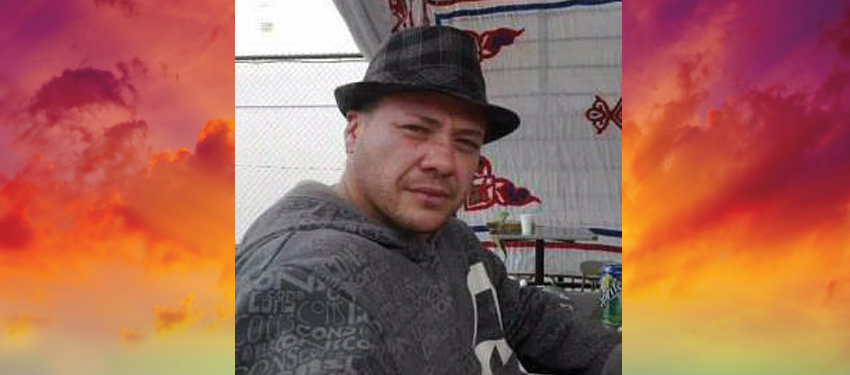
LIKE so many Indigenous Australians, growing up in Darwin Jay Delaney felt keenly an intergenerational disconnect from his roots, his familial heritage and culture — the legacy of the Stolen Generations.
“What happened to my grandmother and her mother during those policies has had an ongoing effect on my family and me,” Jay said.
“A lot of my history is lost and it really hurts to not know for sure who my family was and where they came from.”
Jay is unable to pinpoint his origins and nation due to policies that saw older members of his family taken away and stripped of their culture through imposed re-education and religion. However, he is still trying to track his family history from records and anecdotal evidence that he can find.
He grew up with his parents in the Northern Territory and credits the Indigenous communities around Darwin, in particular the Larrakia people, with helping him achieve a sense of Aboriginal cultural identity.
, he said being unable to have a solid connection with his family’s history left him with an overwhelming sense of confusion, especially by the time he started to feel that he was not like other girls.
From the age of around three or four, Jay sensed his gender identity was at odds with his body, but it was through innocent childhood games, such as one where the boys he hung around would reveal their genitals to each other, that Jay’s conflicting gender identity really started to solidify.
“Ever since those games I knew I was different,” he recalled.
“I’d pull down my pants and obviously notice a clear difference and I knew that it was not how it should be and not how I felt inside.”
Due to there being little information regarding trans* people while growing up, Jay only started to learn about it after moving to Brisbane at 21, and then Adelaide.
“I was at a stage where I was lost in both my gender identity and my cultural one. I needed to move to a place where there was more information and resources,” he said.
Jay decided to undergo his transition at the age of 25, and jumped through the usual hoops laid out for people wishing to have gender reassignment.
He stressed that he doesn’t speak for the entire community and just speaks for himself, but after spending a few years keeping his transition private — not out of shame, rather a preference to not make a big deal out of it — Jay now wanted to help others like him who were going through what he experienced.
LANI — 24
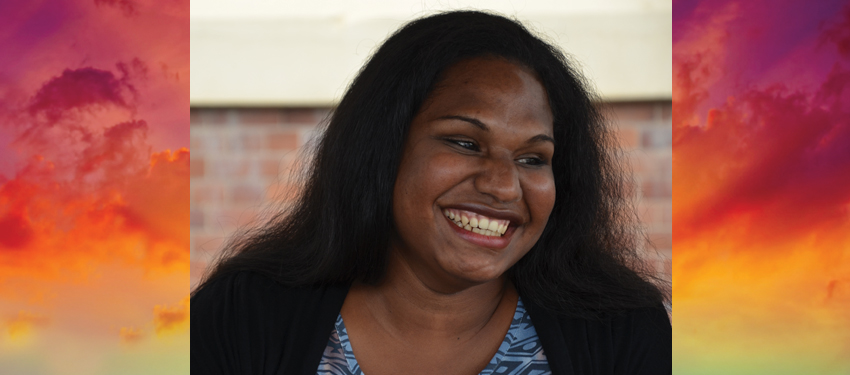
COMING from a family of seven, Lani Dorante said it was tough growing up not feeling her physical life fit her emotional one.
Originally from the Torres Strait, Lani is able to trace her family history and has strong connections with her cultural heritage through her father’s Dhoeybaw and mother’s Koedal clans.
“Many Islander cultures are based around very masculine roles and attitudes and clearly feminine ones too,” Lani said.
Lani said being effeminate during her early years and while attending an all-boys high school did not help with trying to adhere to cultural expectations.
“A lot of the time I was called a ‘poof’ and ‘fag’ by kids at school but at the time I knew that what I was going through didn’t have anything to do with who I was attracted to,” she said.
“I had no idea of transgendered people or that anything like that existed so it was really strange to have people bullying me over my sexuality. I guess I was gay in the sense that I had no idea about gender issues so it was just something I was by default.”
Fortunately for Lani, her mother, along with some of her sisters, understood and showed compassion towards her then, but due to their culture it was kept fairly private. She also had a few gay uncles.
However, according to Lani, her father never appeared to accept or be at peace with her transition before he died a few years ago.
“I was always the hidden daughter of the family. My father was vocally against me being a gay boy but after I transitioned, he sort of behaved like nothing had happened,” Lani said.
“Nothing was ever said or discussed. It was just never spoken about. According to my mother, my father never even spoke to her about it.
“I knew that my father loved me but he was just a victim of the society and culture he was brought up in. He was pure old school. It would have been great if he was able to accept me for all that I am but I know he loved me deep down. I wish he was around to see the woman I have become.”
Lani’s journey to understanding and discovering trans* people existed started when she moved to Cairns in 2008 after high school. Speaking to a sexual health doctor, she was for the first time told she could be experiencing issues regarding her gender not her sexuality.
She first started looking into accessing hormones at the age of 20 and was pointed in the right direction after contacting 2 Spirits, an Indigenous sexual health organisation run in conjunction with the Queensland AIDS Council.
“I started to feel really good about how I felt and looked,” she said.
Despite her father’s reaction, Lani said she had a generally favourable reception to her transition from other family members and her community.
“I kept the news of my transition to my mother but when I finally went home, it was surprising to get a positive reaction from people I knew,” she recalled.
“They were all saying ‘Oh my god, what did you do? You look so pretty!’
“It was a great response.”
—
SPEAKING to the Star Observer in November last year, Sisters and Brothers NT’s Brie Curtis said trans* people have always existed in Indigenous culture, especially before European settlement.
“Back then… they would automatically see that sistergirl, that’s not a boy, she’s a girl. He’s really feminine, so he has to be a girl now. So that sistergirl would go with the women and do women’s dancing and ceremony and all that sort of stuff,” she said.
“So for sistergirls, it’s always been in our culture, and we have the role as a woman. We go hunting with the women. We go sitting with the women and talking with the women, and grow up and have nieces and nephews like they’re our own children.”
However, while trans* people were commonplace in Indigenous communities before European colonisation, Curtis said Christian missionaries have left their mark.
This is backed up by Jay, who said his Aboriginal culture and traditional beliefs were decimated as a result of the Stolen Generations in particular. He said most of the current-day Aboriginal views on LGBTI people were heavily informed and shaped by the Christian doctrine enforced by the church.
“That was the only major hurdle I had to cross when coming back home and dealing with my family and community as a trans* man who had transitioned,” Jay said.
“In my personal experience it was religion that caused any problems I faced.
“And it’s a depressing irony that it’s that religion that was mostly responsible for decimating my family’s history and peoples’ heritage and culture. Yet those who have had an issue with me will use it to defend how they think.”
Due to the cultural impact of the church, Jay believed Aboriginal communities usually did not talk about LGBTI people.
“I spent a lot of time during puberty and my teenage years very depressed because there was no one to talk to and it was frowned upon. Trans* issues within the community were unheard of,” he said.
While the Torres Strait had their share of Christian missionaries over the years, Lani believes her community attitudes towards LGBTI people were instead shaped by long-standing Islander traditions and beliefs.
“In the culture, men are men and women and women. There’s no gay or lesbian or transgender. That was the very definite approach to life by the people I grew up with,” she said.
“There’s no wiggle room, no place for people to act and behave any differently. Anything else was non-existent.”
—
FOR many people undergoing gender transitioning, coming home or seeing close family after the final stages can be fraught with anxiety, rejection and stress.
Both Jay and Lani had mixed reactions from siblings, parents and members of their community.
For Lani, her large family was mostly sympathetic and understood that she struggled with her identity.
“I am from a younger generation so I guess things have changed. People before me have had it much harder,” she said.
“But because I came from a somewhat protective family, I was lucky to have things a little more easy but it wasn’t fully accepted by my father and that was difficult.”
Jay’s family was similarly split. While his father’s side was generally supportive, his mother, who had left him when he was three, and the Aboriginal community she had married into, wanted nothing to do with him.
—-
HOW the trans* community is portrayed by the media and seen by the rest of society is an issue of importance to Jay.
He dislikes what he sees as the “fetishisation” of trans* people, believing it is detrimental to how they are perceived.
Pointing towards a rise in the representation of trans* people within pornography, Jay is at odds with some of the messages that were disseminated by trans* porn star Buck Angel during a recent visit to Australia.
“Going about acceptance and tolerance through a primarily sexual and fetishised approach is damaging to the community as a whole,” he said.
“You get people like Buck Angel coming over here and promoting pornography and it just feeds into the sexualisation of the community.
“I want more of the message to be about awareness and education of sexual and mental health issues facing trans* people and not about who we sleep with or what’s between our legs.”
While he had no problem with expressing sexuality and sex in general, Jay expressed concern for gender-questioning youth.
“My main concern is that we have a lot of minors around the country that are struggling with a lot of anxiety and depression. They’re so vulnerable and I really think for their sake we should be focusing on positive images of the trans* community instead of through the lens of porn and over-sexualisation,” he said.
Jay referred to recent experiences when he felt fetishised by people in Melbourne, where he resides today.
“My last relationship was with a girl who… couldn’t wait to tell everyone I was trans* and make a big deal about it,” he recalled.
“It was something that she kinda turned into a fetish and I felt like I was objectified to an extent. She wasn’t just looking at me as me, rather purely as a trans* man and it felt so objectifying. My family have never made me feel like that.”
—
BEING “hit with the hammer twice” is how Jay described the way in which trans* Indigenous people are faced with disproportionately worse statistics when it comes to mental and sexual health issues.
The disproportionate mortality and morbidity rates facing Indigenous communities as a whole are already well-known. For example, the life expectancy for a white male is 80.5 years according to a 2013 World Health Organisation study, while for an Indigenous male it is 69.1 years.
The wider trans* community is also a group at risk, with HIV and hepatitis being represented at a higher level than other members of the LGBTI community. Some studies have put this down to the over-representation of trans* people within the sex industry.
“That, coupled with the health issues facing Indigenous Australians, really highlights the vital importance of raising mental and sexual health awareness within a very marginalised community,” Jay said.
“Along with higher mortality and morbidity rates than the other groups within the LGBTI community and larger society as a whole, we also have much lower rates of education.”
Highlighting sexual and mental health issues still facing not just Indigenous trans* people but Indigenous communities overall, Jay is now working with Black Rainbow towards breaking down stigma and other cultural barriers that prevent messages of positive health from reaching other trans* Indigenous people.
As for Lani, she has recently started an advocate role with 2 Spirits, providing support to young non-Indigenous and Indigenous trans* youth and adults, in particular reaching out to the Torres Strait Island communities.
She agreed with Jay in that positive portrayals of trans* and trans* Indigenous peoples was a vital component to overcoming issues specific to the communities.
“It is a community that really does get a rough deal and serious efforts need to be made into tackling issues of shame that exists within Indigenous communities,” she said.
**This article first appeared in the July edition of Star Observer. The August issue has just hit the stands in Melbourne, Sydney, Brisbane, Adelaide and Canberra. Click here to find out where you can grab your free copy.
